GLOBAL VMEN: Huddy
First stop is Los Angeles, where Huddy is on the path to becoming Gen Z’s pop-punk prince

This feature appears in VMAN 49 now available for purchase
By 2020, people seemed to have made up their minds about Huddy, born Cole Chase Hudson: “He was just another TikTok star.” And the label wasn’t inaccurate. The Stockton-native had garnered an impressive 32 million followers on TikTok, amplified by his involvement in the Hype House, a hugely successful social media collective he co-founded in 2019. But boiling Huddy down to just a TikTok star turned out to be a vast oversimplification. With the release of his 2021 debut album, Teenage Heartbreak, the artist revealed a new side of himself—one that was reflective, musical, and unmistakably punk.
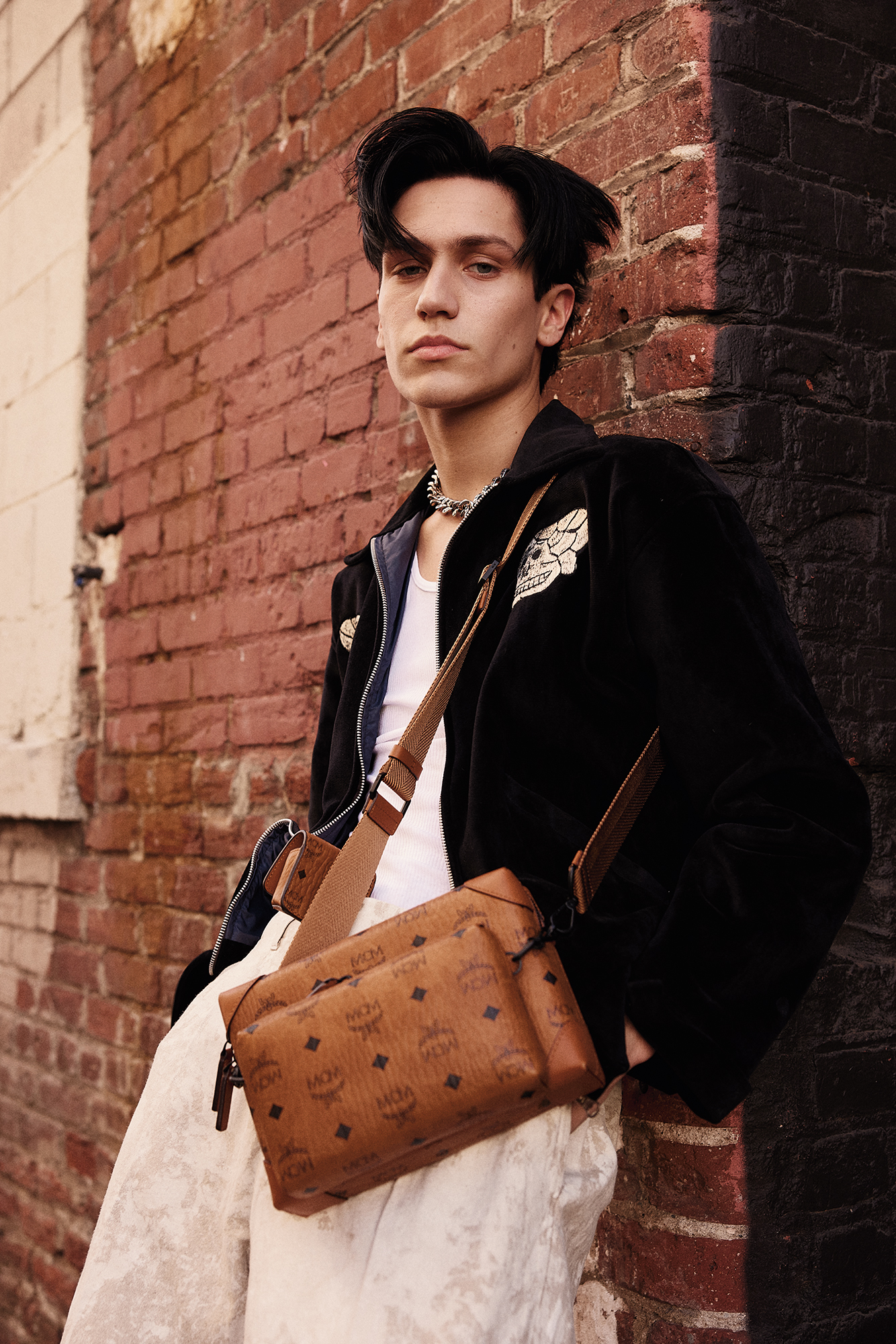
Huddy’s journey with music began long before his online fame—specifically, in his freshman year of high school. “That was one of the worst years of my life, but also one of the greatest years, just because of music,” he says. Introduced to rock by his multi-instrumentalist father and punk rock by his sister, Huddy found an escape in the angst and rawness of artists like Lil Uzi Vert, Machine Gun Kelly, and YUNGBLUD. Having a successful social media presence opened up opportunities for the aspiring artist, including signing with Interscope Records in 2020, but it was up to him to prove he was the real deal.
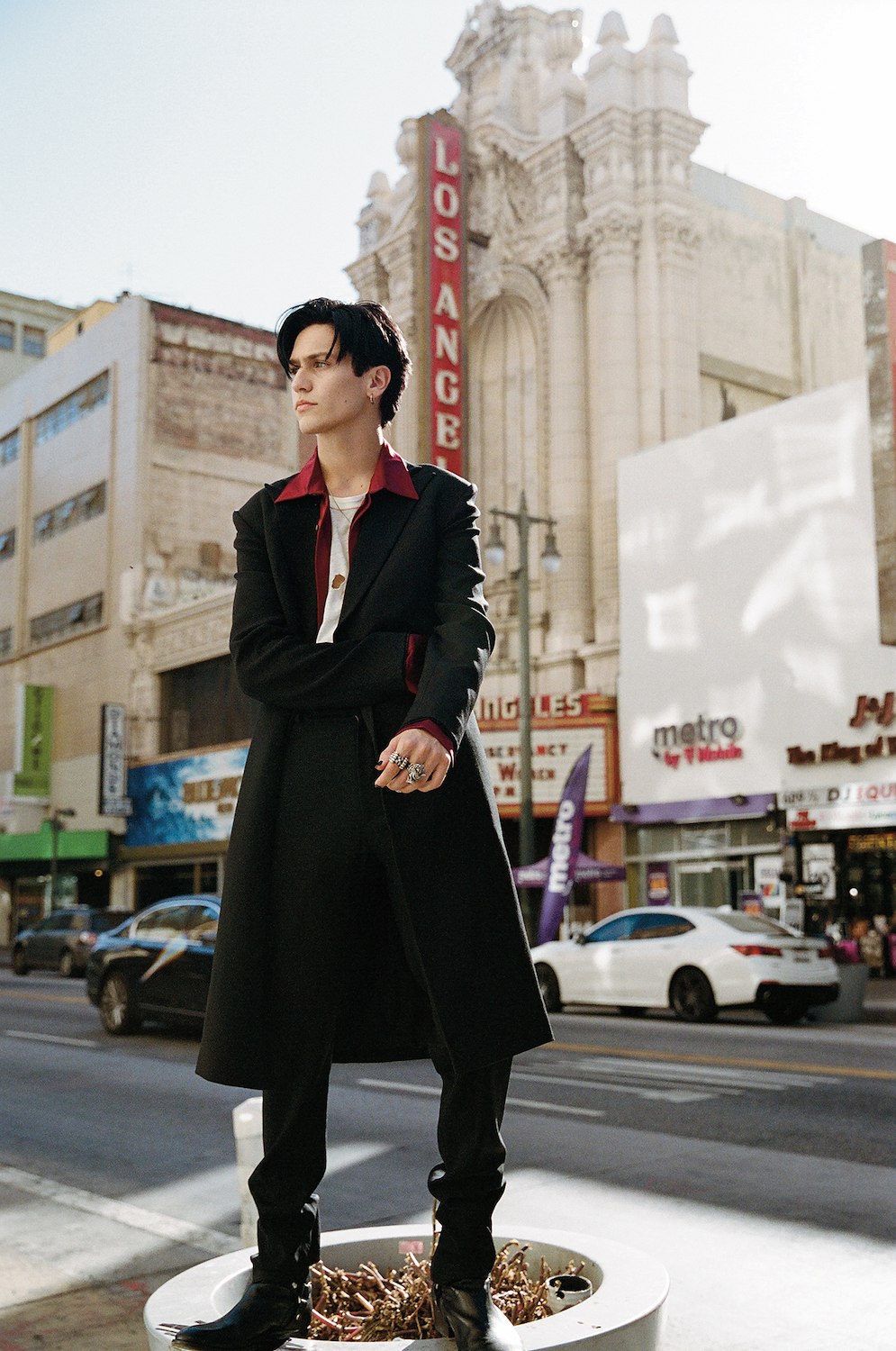
Writing the album’s 11 tracks was an act of self-exploration. Huddy drew from personal experiences to craft the album’s lyrics, forming a story that encompasses the entirety of his adolescent love life. “Going back to the certain places and moments that I was drawing from for these songs was shocking for me,” he recalls. Packaging his emotional highs and lows with unique, hypnotizing beats, Teenage Heartbreak cemented Huddy’s status as a promising player in the pop-punk revival. He even earned the approval of genre heavyweights: MGK cast Huddy in his musical film Downfalls High while Tyson Ritter gifted him a painting from his “Dirty Little Secret” music video.
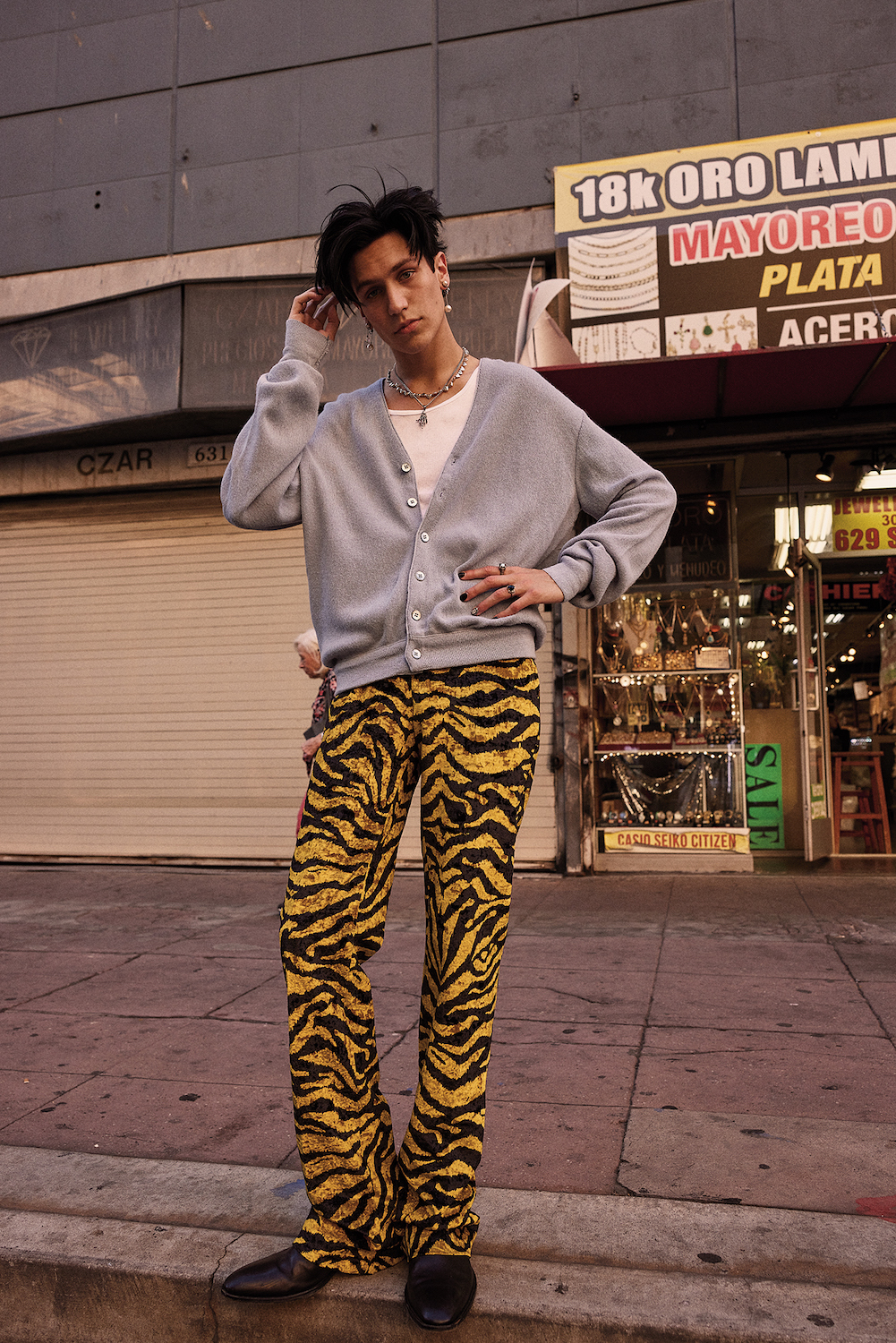
If the pressure for Teenage Heartbreak was high, for his next project, it’s astronomical. People take him seriously as a musician now, which comes with increased expectations. Still, Huddy isn’t breaking a sweat. The rising talent has been hard at work on new material and is eager to share it with the world when it’s ready. He’s careful not to give away too many details, but hints at a break from Teenage Heartbreak’s subject material inspired by his recent stretch of singledom. “It’s not about love,” he says with a grin. “I’ll tell you that much.”
Read more of Huddy’s conversation with VMAN below:
VMAN: What’s your creative process when you’re writing and crafting a song, from thinking of the idea to recording it? Is there anything unique to your process?
H: I’ll start with an idea, and I’ll tell it to whoever it is I’m working with that day. I’ll introduce them to me. I’ve been working with some new writers and producers recently, so I’ll show them a few reference tracks of what I’ve been working on. Try to mix the two flavors together with where my head is at that day, and where my head was at while making some other records recently. That way they have an up-to-date feel. Then we’ll go from there. We’ll usually try out guitars first, and after we have a guitar reference we’ll look for a melody. I like to start backward, so I’ll start with the hook first. Then I’ll write a pre-chorus and verses.
VMAN: With Teenage Heartbreak, was there any track on the album that changed a lot from your initial ideas to how it turned out?
H: Yeah. When we write the songs, we would have it fully completed before we were able to track Travis [Barker]’s drums onto any of the records. So, what you think would be the final product only gets louder and more perfect and more put together once we put the drum work on it. It almost reworks the track and gives it new life. Each time Travis would track any drums on my stuff, it was always really surprising. But also seeing anything come through—making a song with my voice is still so confusing to me. Like, that’s me, after even writing it, it’s always a fun, surreal thing. Like, damn, I’m making this right now? It’s weird. It’s hard to explain.
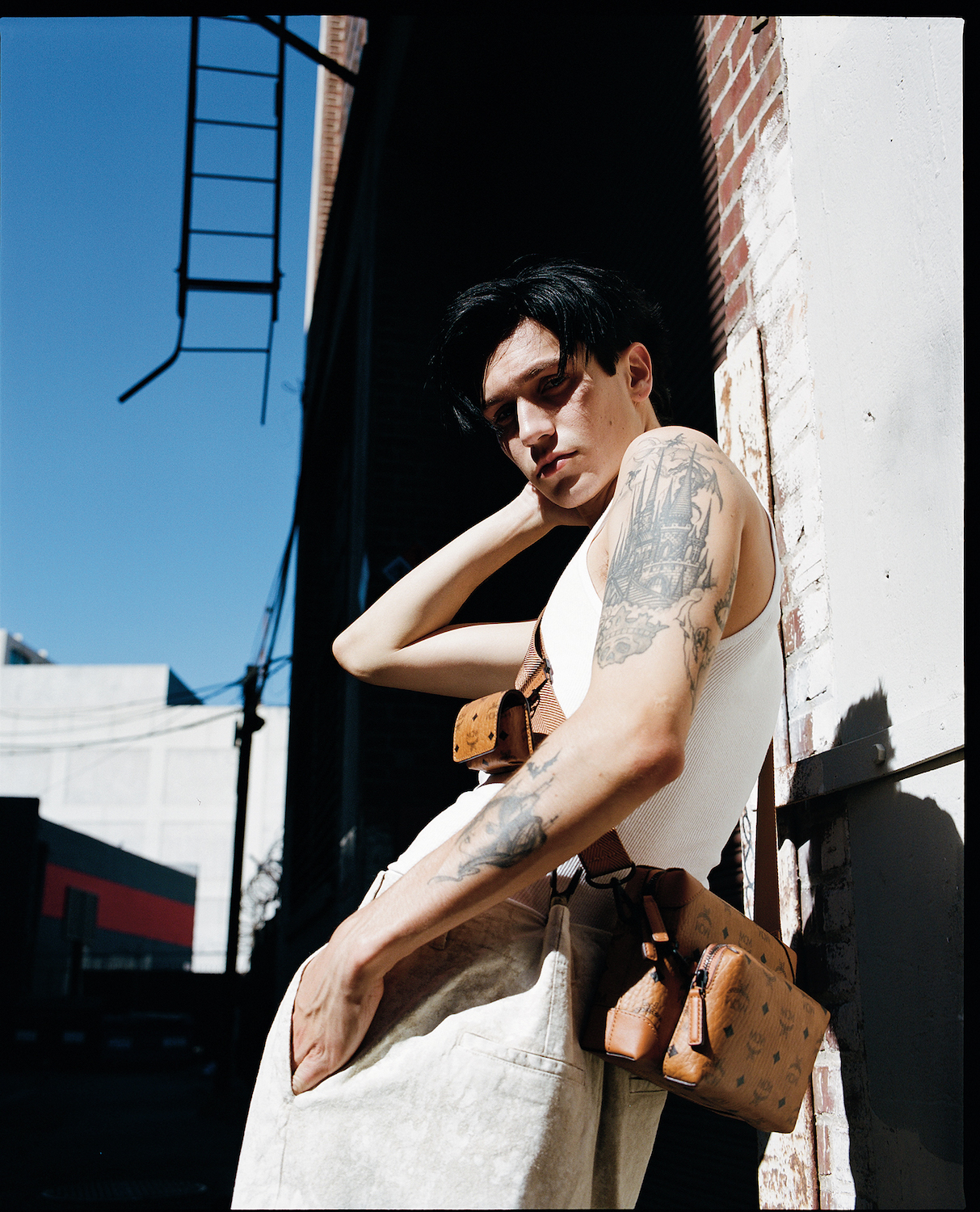
VMAN: Was there anything you learned about yourself while working on that album, especially since it was your debut?
H: Yeah, I learned a lot about myself, really. I had a struggle with self-awareness, especially with all of the relationships that had taken place, that I had been talking about [on the album]. I wanted to give people an idea of what all of my love life looked like, wrapped into one album. Going back to the certain places and moments that I was drawing from for these concepts and these songs was shocking for me. Being able to relive these emotions that I’d gone through—emotions I couldn’t admit to myself at the time. I just felt so much—and emotionally, I’m either a connected or a disconnected person. So for me to come back to it, it felt really important. Like it needed to happen for me to be more self-aware going forward.
VMAN: Would you say that’s carried over as you’re working on new music? How do you feel that you’ve continued to grow as an artist since the release of Teenage Heartbreak?
H: I feel like Teenage Heartbreak was some of the first music that I really had made. Everything after this was like a reminder that Teenage Heartbreak was a building block, letting me go from a cocoon to a butterfly. Now I’m able to fully understand how to make music, whereas when I was working on the first few songs on Teenage Heartbreak, I didn’t completely know what I wanted. Now I’m in a place where I know exactly what I want to say, exactly what I want to talk about and use instrumentally. Teenage Heartbreak has helped me understand what my sound is to begin with—and what it is going forward now.
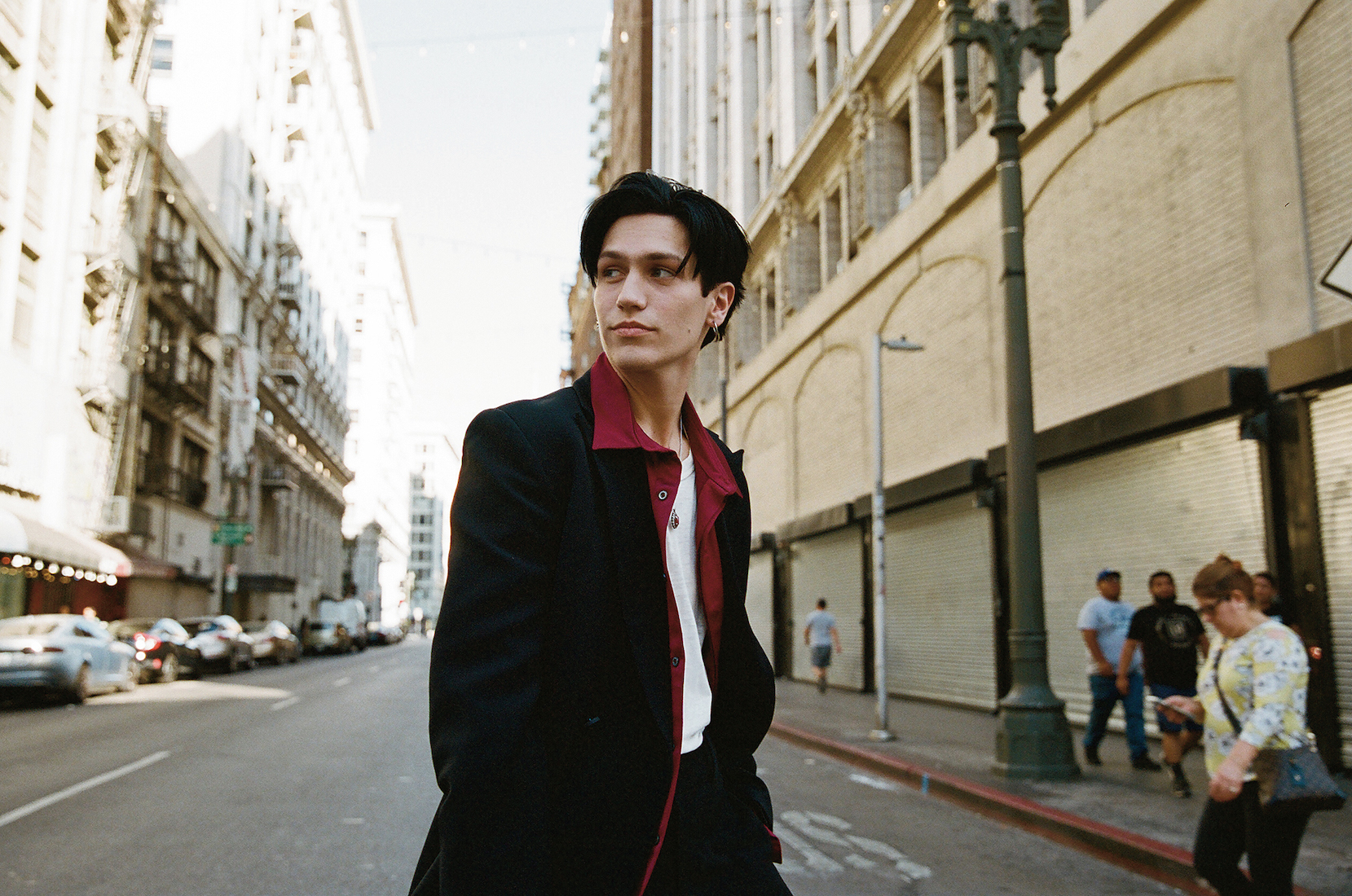
VMAN: I know you had the chance to collab with other artists for your track, “Don’t Freak Out,” which featured iann dior, Tyson Ritter, and Travis Barker. Was there any memorable advice or lessons you picked up from them while working on that song?
H: One of the things Tyson Ritter gave to me when we released “Don’t Freak Out” was a one-of-one painting from his music video “Dirty Little Secret.” On the back of it, it says ‘The world is your playground.’ That’s something I feel like really left me speechless. It opened my eyes in a way. It made me realize that I should and could do more, and if I treat music as something fun, almost like a playground—if I treat everything as serious, but in a way that’s fun and fresh, people will go with it if it feels real and authentic. I remember seeing the paintings that were in the music video, in the background, for “Dirty Little Secret.” So, it was weird. It was a full-circle moment, really.
VMAN: Are you working on any new music?
H: Ever since I released “21st Century Vampire,” I was pretty much done with that whole album. So, ever since the beginning of 2020, I’ve been working on different, new music that no one’s heard. I have a lot of it, and I’m really fired up to be able to come back and roll it all out. I have nothing set and planned, but I have the music.
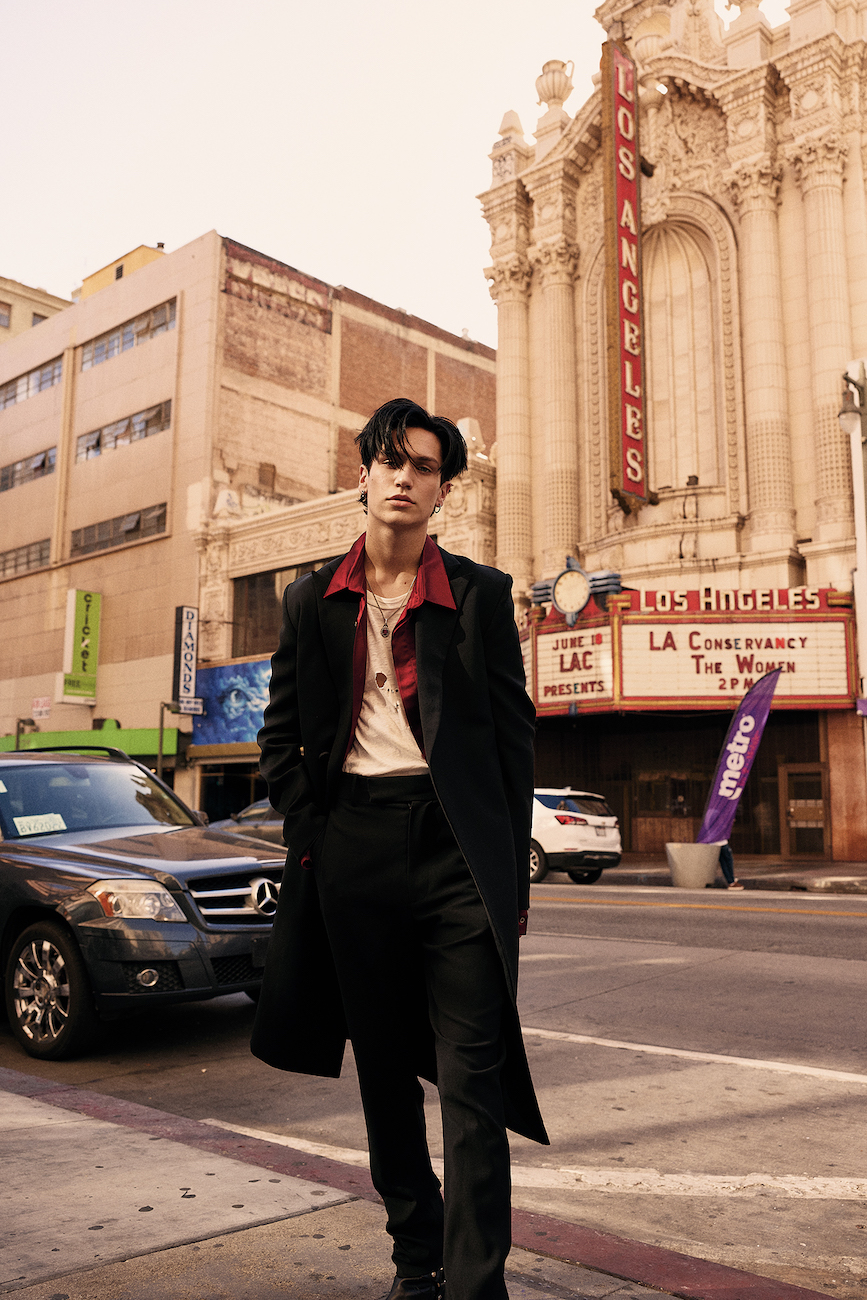
VMAN: I don’t know how much you can share, but I’d love to know the themes you’re exploring in the new stuff. The new messages you’re trying to send, to realize.
H: If I were to say one thing, I would probably say that the new music feels fresh. It feels more myself. I talk a lot more about present situations. Teenage Heartbreak was a self-reflection album, about what love was to me over the years. Now it’s like, I’m not even in a place of love. I’m deeply, thoroughly by myself now. And I have all of these messages I really want to give to the world. It’s not about love. I’ll tell you that much.
VMAN: You’ve been open about mental health struggles due to bullying in school, the toxicity of social media, and the toxicity of fame in general. What’s helped you get through that? Has it become easier to deal with over time? How has that journey been for you, especially as the spotlight on you keeps growing?
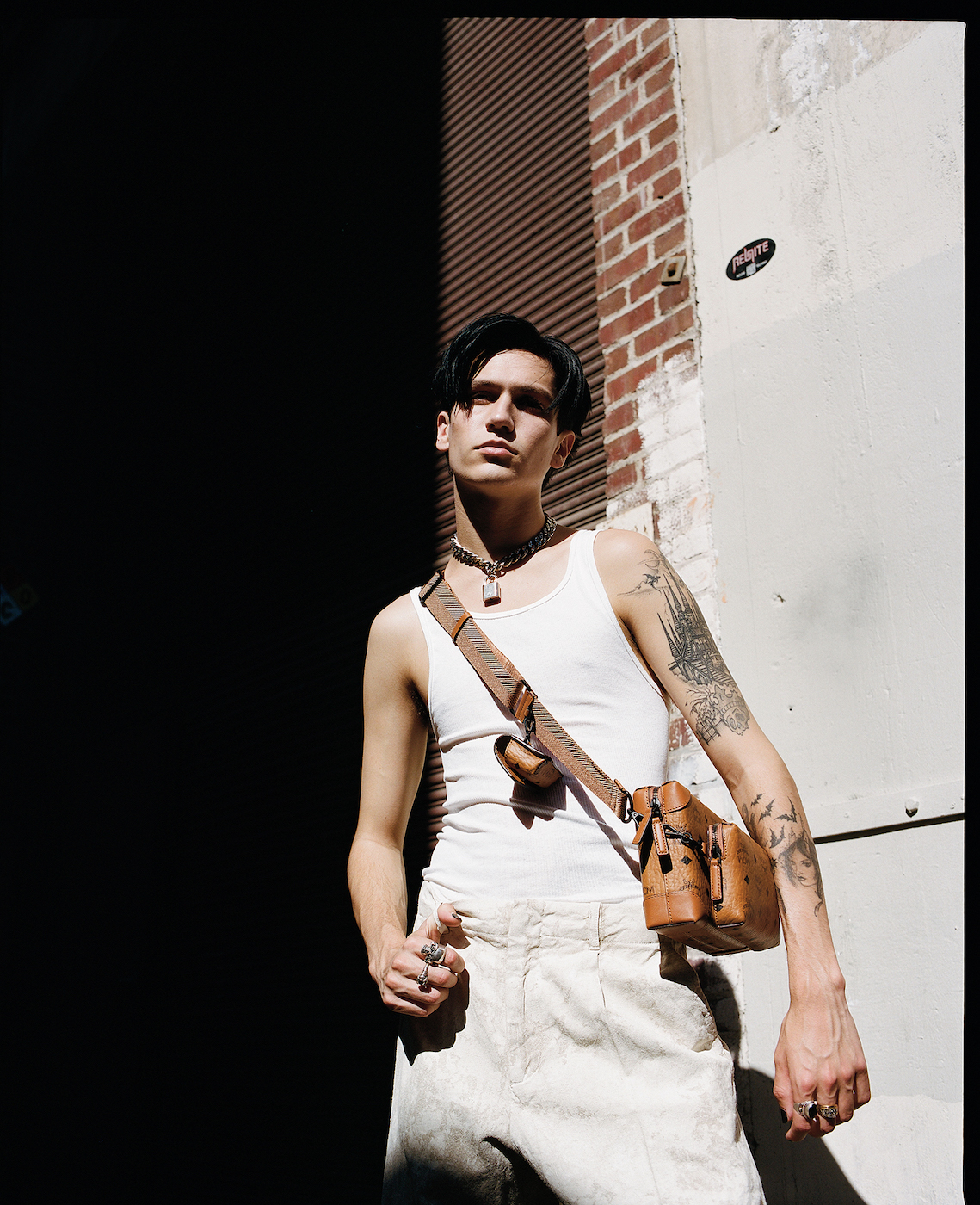
H: It’s been pretty hard. I think mental health is the number one struggle when it comes to doing anything on social media. Ninety percent of the time, I wake up and feel more mentally exhausted than anything. So, that leaves me in a place where I don’t feel I can be communicative with people online sometimes. If I can’t even take care of myself, how can I take care of business? I know it’s become harder for a lot of people to find who they are because of what they deem their worth is on the Internet. I think that’s a hard pill to swallow in LA: you are what your status is in LA. That’s how people treat you—like you are whatever your status is. It’s a scary environment. Honest to God, I leave my house to go to the studio and back to my house. I don’t like to go out anymore. It’s not fun.
VMAN: You’ll be touring this Fall with Oliver Tree and JAWNY. What can people expect from that?
H: Everyone can expect some chaos. It’s going to be a good tour. The opportunity presented itself to me one day, randomly. I’ve always wanted to go on tour, so I said yes right away. I think Oliver Tree is a very cool and creative artist, so I’m excited to see what I can learn from him and see what he does on stage.
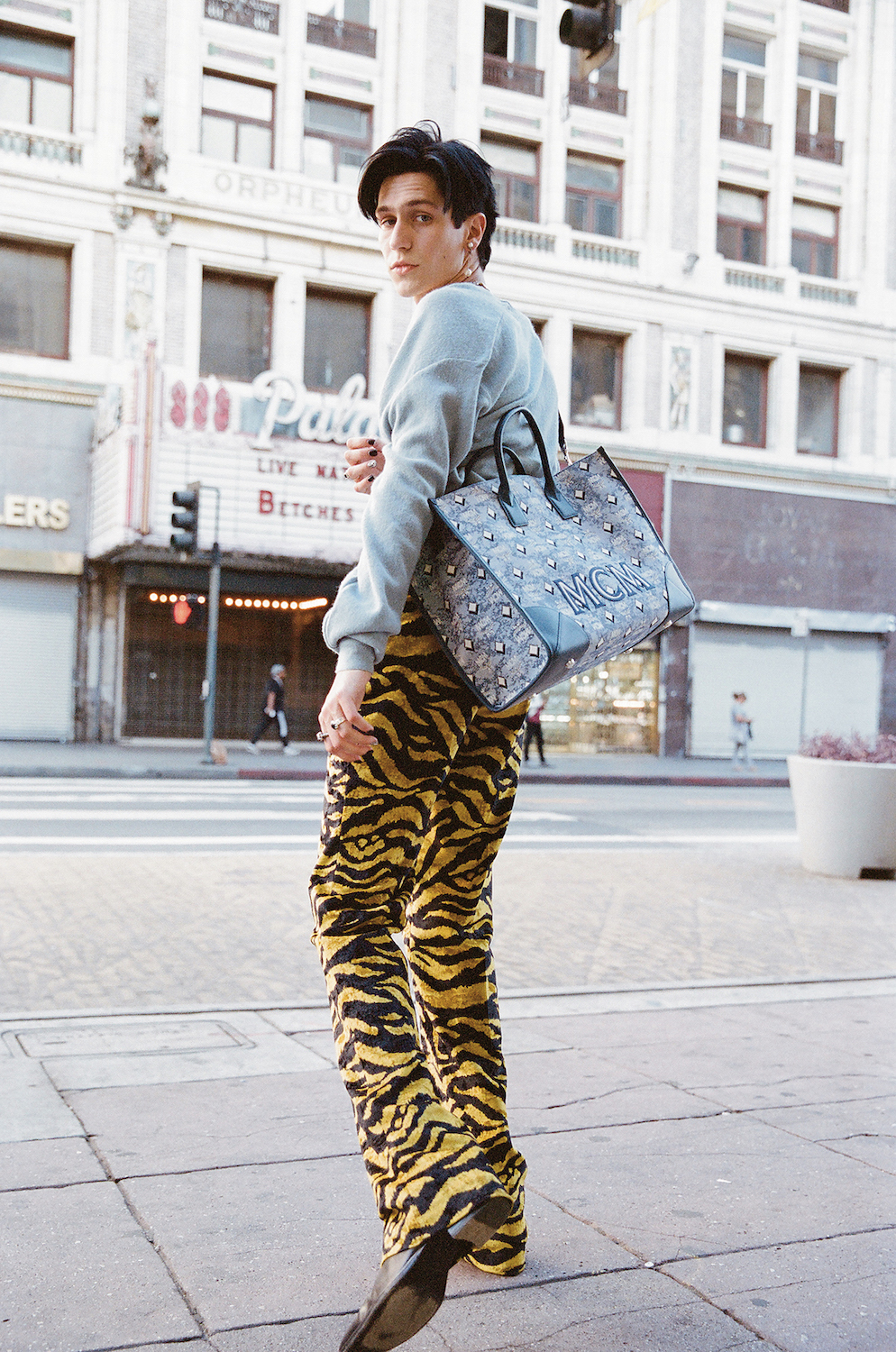
Discover More
